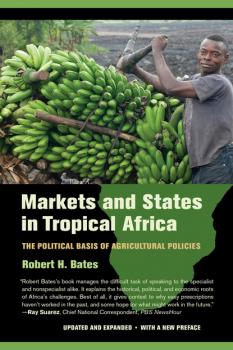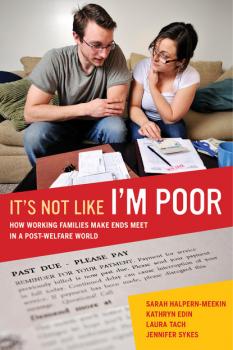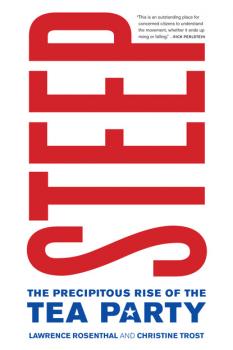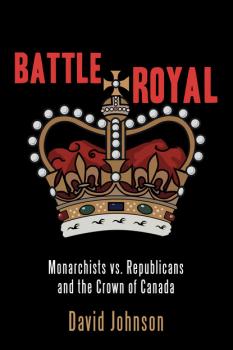ТОП просматриваемых книг сайта:
Зарубежная публицистика
Различные книги в жанре Зарубежная публицистика, доступные для чтения и скачиванияАннотация
Have you ever had a person talk out of turn, raise their hand at a bad time or even ignore you when you ask them to stand up? Why so uncultured and brash? It is because they did not understand parliamentary procedures. These rules help to keep a meeting on time, on agenda, and safe from rouge individuals who wish to derail the meeting with foolish antics. A guidebook can help your organization stand out by providing a baseline framework for things such as member elections, payment of dues, proper motion procedures, organization meeting agendas, and other issues that may arise as a result of serving numerous amounts of people.
Аннотация
This revised, updated, and expanded fourth edition of <I>Immigrant America: A Portrait</I> provides readers with a comprehensive and current overview of immigration to the United States in a single volume.<BR /><BR /> Updated with the latest available data, <I>Immigrant America</I> explores the economic, political, spatial, and linguistic aspects of immigration; the role of religion in the acculturation and social integration of foreign minorities; and the adaptation process for the second generation. This revised edition includes new chapters on theories of migration and on the history of U.S.-bound migration from the late nineteenth century to the present, offering an updated and expanded concluding chapter on immigration and public policy.
Аннотация
Portrait of America describes our nation’s changing population and examines through a demographic lens some of our most pressing contemporary challenges, ranging from poverty and economic inequality to racial tensions and health disparities. Celebrated authorJohn Iceland covers various topics, including America's historical demographic growth; the American family today; gender inequality; economic well-being; immigration and diversity; racial and ethnic inequality; internal migration and residential segregation; and health and mortality. The discussion of these topics is informed by several sources, including an examination of household survey data, and by syntheses of existing published material, both quantitative and qualitative. Iceland discusses the current issues and controversies around these themes, highlighting their role in everyday debates taking place in Congress, the media, and in American living rooms. Each chapter includes historical background, as well as a discussion of how patterns and trends in the United States compare to those in peer countries.
Информация о книге
Автор произведения John Iceland
Аннотация
Following independence, most countries in Africa sought to develop, but their governments pursued policies that actually undermined their rural economies. Examining the origins of Africa’s «growth tragedy,» <i>Markets and States in Tropical Africa</i> has for decades shaped the thinking of practitioners and scholars alike. Robert H. Bates’s analysis now faces a challenge, however: the revival of economic growth on the continent. In this edition, Bates provides a new preface and chapter that address the seeds of Africa’s recovery and discuss the significance of the continent’s success for the arguments of this classic work.
Аннотация
The world of welfare has changed radically. As the poor trade welfare checks for low-wage jobs, their low earnings qualify them for a hefty check come tax time—a combination of the earned income tax credit and other refunds. For many working parents this one check is like hitting the lottery, offering several months’ wages as well as the hope of investing in a better future. Drawing on interviews with 115 families, the authors look at how parents plan to use this annual cash windfall to build up savings, go back to school, and send their kids to college. However, these dreams of upward mobility are often dashed by the difficulty of trying to get by on meager wages. In accessible and engaging prose, <I>It’s Not Like I’m Poor</I> examines the costs and benefits of the new work-based safety net, suggesting ways to augment its strengths so that more of the working poor can realize the promise of a middle-class life.
Аннотация
In the Spring of 2009, the Tea Party emerged onto the American political scene. In the wake of Obama’s election, as commentators proclaimed the «death of conservatism,» Tax Day rallies and Tea Party showdowns at congressional town hall meetings marked a new and unexpected chapter in American conservatism. Accessible to students and general readers, <i>Steep: The Precipitous Rise of the Tea Party</i> brings together leading scholars and experts on the American Right to examine a political movement that electrified American society. Topics addressed by the volume’s contributors include the Tea Party’s roots in earlier mass movements of the Right and in distinctive forms of American populism and conservatism, the significance of class, race and gender to the rise and successes of the Tea Party, the effect of the Tea Party on the Republican Party, the relationship between the Tea Party and the Religious Right, and the contradiction between the grass-roots nature of the Tea Party and the established political financing behind it. Throughout the volume, authors provide detailed and often surprising accounts of the movement’s development at local and national levels. In an Epilogue, the Editors address the relationship between the Tea Party and the Occupy Wall Street movement.
Аннотация
Breaking Ranks brings a new and deeply personal perspective to the war in Iraq by looking into the lives of six veterans who turned against the war they helped to fight. Based on extensive interviews with each of the six, the book relates why they enlisted, their experiences in training and in early missions, their tours of combat, and what has happened to them since returning home. The compelling stories of this diverse cross section of the military recount how each journey to Iraq began with the sincere desire to do good. Matthew Gutmann and Catherine Anne Lutz show how each individual's experiences led to new moral and political understandings and ultimately to opposing the war.
Аннотация
In <i>Bounded Rationality and Politics</i>, Jonathan Bendor considers two schools of behavioral economics—the first guided by Tversky and Kahneman’s work on heuristics and biases, which focuses on the mistakes people make in judgment and choice; the second as described by Gerd Gigerenzer’s program on fast and frugal heuristics, which emphasizes the effectiveness of simple rules of thumb. Finding each of these radically incomplete, Bendor’s illuminating analysis proposes Herbert Simon’s pathbreaking work on bounded rationality as a way to reconcile the inconsistencies between the two camps. Bendor shows that Simon’s theory turns on the interplay between the cognitive constraints of decision makers and the complexity of their tasks.
Аннотация
An engaging, thought-provoking look at the great debate headed our way on whether to continue the monarchy in Canada after the death of Elizabeth Carefully looks at both the pro- and anti-monarchist sides and how they fit into Canadian political traditions Also highlights the problems associated with abolishing the monarchy in Canada Many Canadians have said they want to abolish the monarchy after Queen Elizabeth dies, rather than pass the crown on to her son Prince Charles Rich in detail on the Crown in Canadian history, how our democratic system has developed alongside it, and the real political powers still held by the Queen and her vice-regents today
Аннотация
John Boyko is the bestselling author of six books addressing Canada’s history and politics and a regular op. ed. contributor to newspapers across Canada While addressing a serious theme, the book sparkles with intriguing stories, fascinating characters, and in its many digressions, terrific humour Because Canada’s strength is its constant voyage of self-discovery and re-invention, the book’s value is its fresh perspective that will please some and antagonise others, while entertaining and challenging all Brings history, politics, power, and philosophy into a narrative bristling with sharp analysis and perspective sure to spark debate The book’s fundamental question is whether the Canada we enjoy today, so firmly resting on the foundation of yesterday’s triumphs and tragedies, is true to the vision of its founders and especially that of its primary architect and first prime minister, Sir John A. Macdonald










